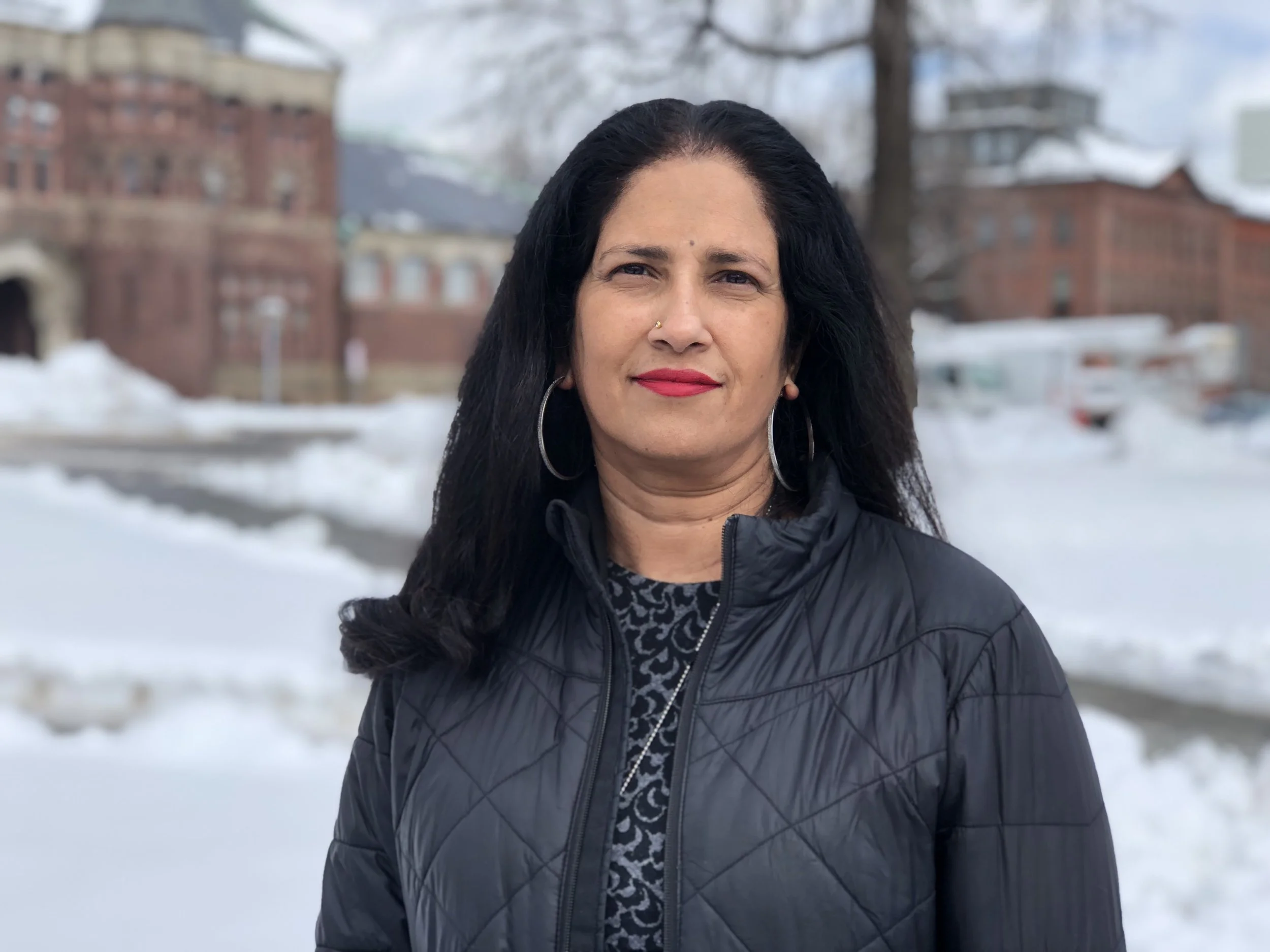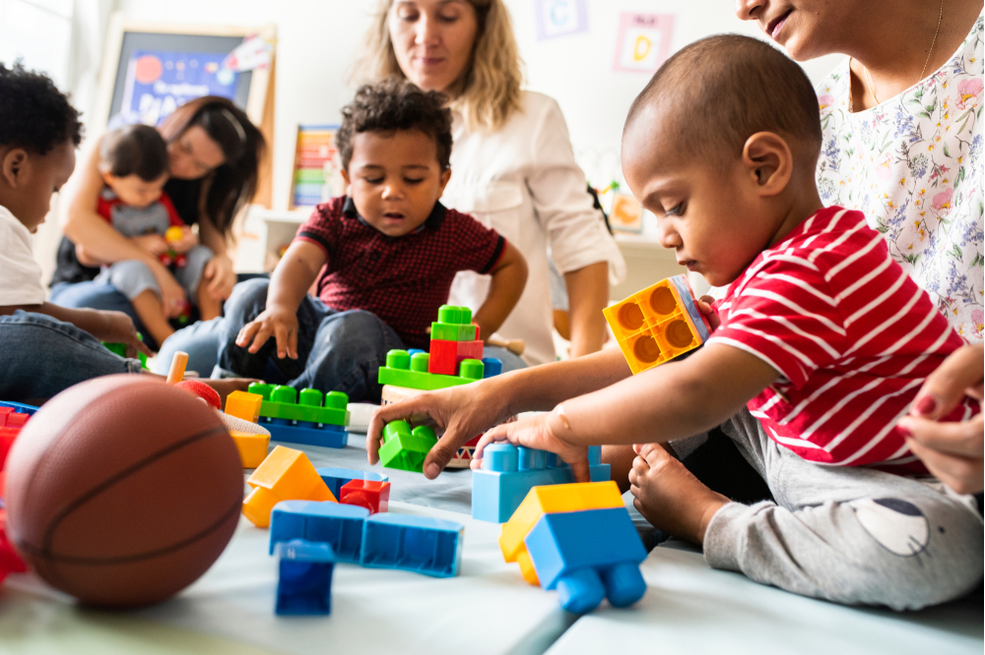Primed: The Future of Bezos Education Giving Takes Shape
/photo: MB Images/shutterstock
Last week, Jeff Bezos announced the $2 billion Day One Fund to champion work supporting homeless families and launch a network of high-quality preschools in low-income communities. Little is known about this work beyond what Bezos said in his tweet, but parsing the details he included offers a rough idea of what to expect from his future endeavors in education philanthropy—at least in the near term.
In his statement, Bezos promised to establish the Day 1 Academies Fund to launch and operate a network of preschools in underserved communities. He described the schools as “high-quality, full-scholarship [and] Montessori-inspired.”
With this pledge, Jeff and MacKenzie Bezos are moving into an area of philanthropy where lots is going on right now. Their involvement in early learning builds on work already underway and is likely to shape trends in this critical space.
Early childhood education has been gaining traction among philanthropists and policymakers, largely due to a growing body of evidence in its favor. Still, many of its proponents lament that early childhood education is still not getting the attention and funding it deserves. The Bezos news is already making waves among leading early childhood learning advocates, who are excited by the potential resources the Amazon titan and his wife could bring to the field.
Sarah Rittling, executive director of the First Five Years Fund, is one of those advocates.
“I think it’s unbelievable. I think it’s so wonderful that he’s identified this as a priority area, and he’s putting his philanthropic dollars behind it,” Rittling said. “I’m really interested in seeing how all of this can really bubble up and be articulated in a way that shows that we’re at a tipping point of change.”
Rittling’s organization works on the federal level to build support for early childhood education. The advocacy receives financial support from several prominent early education funders, including the Buffett Early Childhood Fund, the Pritzker Children’s Initiative and the W.K. Kellogg Foundation.
The early childhood education field has been energized by advancing research on the importance of the first five years of a child’s life when it comes to brain development and educational ability. Kids that fall behind early rarely catch up. In most cases, a child’s development before she enters school is tied closely to her parents’ income and education levels, which leaves poor kids at a disadvantage before they even start school.
Gaps in vocabulary tied to parents’ income and education levels can emerge in kids as young as 18 months old, according to the Harvard Center on the Developing Child. As kids grow up, those gaps only widen.
Early interventions that target kids from birth to around age five, before they even start school, have been shown to close that gap. It’s much easier to get a child on track early, because once she falls behind, it’s nearly impossible to catch up.
For that reason, supporters of early childhood education argue that it’s the intervention with the biggest return on investment. That one of the world’s most successful businessmen and his wife have picked early childhood education as their first major investment in education philanthropy is a heady endorsement for longtime advocates of the space.
For Rittling, the investment is also a sign that organizations like hers are on the right track.
“This is not new work, but to see the new investment going toward the work, seeing the value, it kind of shows that A, we’re doing the right work, and B, we’re doing something right by really drawing attention to the need that exists in these key age ranges.”
In his involvement in early childhood education, Bezos will be joining his own parents, Mike and Jackie Bezos, who have funded initiatives in the space for years through their Bezos Family Foundation. The elder Bezoses have always maintained that their giving is separate from their son’s and would have little bearing on what he decided to pursue if he got involved in philanthropy. As it turns out, the apple doesn’t fall far from the tree after all.
Even though both branches of the Bezos family will soon be involved early childhood education, their work will look quite different, as is often the case within the field. Mike and Jackie’s big investments in early childhood learning have gone to Mind in the Making and Vroom. Both are efforts that target parents in an attempt to share the latest research on early childhood development in digestible and actionable ways.
Mind in the Making is a national initiative to share the latest brain research with the public, specifically families and child professionals, through training modules. Vroom is a little more difficult to categorize. Like Mind in the Making, the intention is to reach parents and people who work with young kids. The free service provides parents with tips and activities that they can layer onto everyday interactions to turn them into exercises that help the child’s brain develop. Activities are simple—for example, making up a rhyme about food during mealtime. They are tied to a child’s age, and the service links to the science behind them for parents who want to learn more.
The parent-focused tool looks very different from the network of preschools Jeff Bezos intends to build. The contrast represents a split within the field itself. Because early childhood learning is predicated on working with kids before they reach school age, interventions take a few different angles for different audiences.
Mike and Jackie Bezos fall into the group of funders who support work to reach parents directly or indirectly to ensure they have the tools and knowledge to support brain development at home. After all, parents are many children’s first teachers. Those tactics could include a tool like Vroom or might take the form of public awareness campaigns, like the Kenneth Rainin Foundation’s Talk, Read, Sing initiative, or Too Small To Fail’s work to get educational messages on popular TV shows.
Home visits are another variation on this type of intervention. They are highly effective, but less common in philanthropic work. Scaling and sustaining home visit programs in the long term requires public buy-in because of their high cost.
Jeff Bezos’ work, on the other hand, will have more in common with philanthropists focused on bolstering the quality of childcare and funding preschool, often through private-public partnerships. Those strategies focus on making sure that when children are outside the home, they’re getting the highest quality care and education possible.
The Reinvestment Fund is leading work that targets childcare in several cities, including Washington, D.C. The fund partners with local funders like the William Penn Foundation in Philadelphia and the Bainum Family Foundation in the district to work with existing childcare sites to improve in quality and expand when necessary.
In contrast, Bezos has indicated that the couple’s new fund will build a network of preschools from scratch. Based on that description, it sounds like the work will share the most in common with Educare, a network of preschools started in Chicago by local philanthropists that has spread to other cities through a combination of private and public funding. Educare works with low-income kids, which Bezos said would be the intention of his network.
“The Child Will be the Customer”
At this point, it’s unclear whether Bezos will pursue public buy-in for his network like Educare has, though the business overtones of his rhetoric suggest that perhaps he might not. In his tweet, Bezos said that he would bring the same set of principles he used to make Amazon successful to running the network of preschools.
“Most important among those will be genuine, intense customer obsession,” he said. “The child will be the customer.”
Bezos is far from the first tycoon to try to apply his business acumen to America’s education system. Those who have tried before him were more often than not met with frustration. Bill Gates has famously admitted that the billions he poured into education over the last two decades have led to disappointing results. Mark Zuckerberg’s early foray into education philanthropy with a $100 million grant to Newark schools was met with ridicule when the effort failed to get local buy-in.
The miscalculation many education philanthropists make early on in their giving is believing that what works in business will work in the complex bureaucracy that is the American education system. It’s one reason that many reformers turned to charter schools after the failed reform effort backed by Walter Annenberg in the 1990s. They reasoned that it was easier to build a new system from scratch that works outside the existing system. However, backers of the charter movement didn’t count on the difficulty of scaling their new schools to reach a significant number of students.
Here, Bezos does have an advantage.
By focusing on early childhood education, he doesn’t have to reform public schools or fund an alternative charter system to scale. The United States does not have publicly funded, universal preschool. Bezos’ network will not have to compete for students with an existing publicly backed infrastructure, nor will he come up against the challenges associated with reforming an existing system.
The language Bezos uses is also reminiscent of student-focused rhetoric around ideas like personalized learning, which have renewed popularity among education reformers, thanks to technological innovations that make it easier to tailor learning to each child.
The Montessori Mafia
Personalized learning has its roots in the teachings of Maria Montessori, who pioneered the teaching method in the early 20th century. Notably, Bezos mentioned the method specifically in his statement, saying that the preschools would be Montessori-inspired.
The teaching method has a number of deep-pocketed backers within the world of education philanthropy, including members of the Walton family, heirs to Walmart, who conduct their giving through their family foundation.
James Walton, grandson of Sam and Helen Walton, is a big believer in Montessori education. He serves on the board of Trust for Learning, a group of grantmakers focused on closing the achievement gap through expanding the availability of what the group calls “ideal learning” programs. The programs draw on the ideas of Montessori, among others. The group also pushes for access to early childhood education.
The Brady Education Foundation, Harold Simmons Foundation and McCall Kulak Family Foundation are also big supporters of Montessori education, as part of the grantmaker collaborative and on their own. If Bezos were to join them, it could mean a big boost for the teaching method.
Of course, it is still early. Bezos hasn’t even released the breakdown of how much of the $2 billion will fund education and how much will fund helping homeless families. Nor did he release details of when this might happen or how he intends to structure his giving financially. However, we do know that Bezos is moving into education philanthropy in a big way. With a net worth of almost $160 billion, Bezos could give quite a lot more in the future.
Related:







































